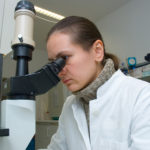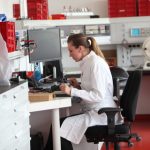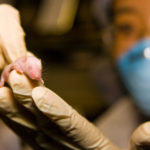
Investigating use of new HIV prevention strategy
Wales is about to become one of the first countries to robustly examine the use of a new HIV prevention strategy that has been rolled out across the world. Cardiff University reports Dr David Gillespie, Deputy Director of their Infections, Inflammation and Immunity Division, will lead the research after winning a Health Research Fellowship award … Continue reading Investigating use of new HIV prevention strategy

Developing better treatments for mental illness
A Cardiff University researcher is working to better understand the systems in the brain responsible for causing psychiatric disorders and has identified specific processes affected by genetic mutations in patients with schizophrenia and bipolar disorder. By studying genetic data from thousands of patients, Dr Nick Clifton’s research pinpoints groups of proteins important for brain development, … Continue reading Developing better treatments for mental illness

Cardiff Medicentre hosts EU delegates
A party of twenty EU delegates met with leading clinical innovators during a tour of Cardiff Medicentre. The delegates took a tour of the Medicentre as part of a Welsh Government Innovation “Learning Journey” workshop. The Welsh Government is sharing innovation and advanced manufacturing best practice with European partners as part of the €937,661 EU-funded … Continue reading Cardiff Medicentre hosts EU delegates

New genetic link for prostate cancer
New research has uncovered insights into the mechanisms that underlie prostate cancer, providing potential targets for new cancer therapies. Prostate cancer is the third most common cause of cancer-related deaths in the UK, and researchers from Cardiff University have identified a genetic alteration that is linked to poor prognosis for prostate cancer. Advanced prostate cancer … Continue reading New genetic link for prostate cancer

A novel switch to control gene editing
A biological switch that reliably turns protein expression on at will has been invented by University of Bath and Cardiff University scientists. The switch enables control of genome editing tools that might one day regulate cascades of desired genetic changes through entire populations. Phys.Org reports this new switching method should work for any protein in … Continue reading A novel switch to control gene editing

Potential treatment for genetic form of autism
It may soon be possible to reverse a genetic form of autism spectrum disorder (ASD) by using drugs initially developed to treat cancer. A team of researchers, led by Professor Riccardo Brambilla from Cardiff University, discovered that an experimental drug can potentially treat, and even permanently reverse, the symptoms associated with a genetic form of … Continue reading Potential treatment for genetic form of autism

Gaining an understanding of absence epilepsy
Research by Cardiff University has uncovered the brain activity that underlies absence epilepsy, offering new hope for the development of innovative therapies. Absence epilepsy, the most common form of epilepsy in children and teenagers, causes episodes of lack of awareness which are often mistaken for daydreaming. The brain activity that causes this form of epilepsy … Continue reading Gaining an understanding of absence epilepsy

Mapping how long-term spatial memory is stored
Cardiff University reports their researchers have mapped out how people store long-term spatial memory. Professor Frank Sengpiel, from Cardiff University’s School of Biosciences, said “Until now, how the brain stores information about our environment over long periods of time has been a mystery. Our new research reveals a pattern of brain cell activity within the … Continue reading Mapping how long-term spatial memory is stored

£33m for new Welsh healthcare products and services
A financial injection, announced by the Welsh Government, has the potential to improve healthcare, grow the economy and create high quality jobs. Cardiff University reports £24m will come jointly from the European Regional Development Fund and the Welsh Government. Over three years it will support ACCELERATE, the Welsh Health Innovation and Technology Accelerator, bringing together … Continue reading £33m for new Welsh healthcare products and services

Report reveals healthy smiles for Welsh children
A new report of dental health in Wales reveals a steady and consistent reduction in the prevalence of tooth decay in eleven and twelve year olds. Cardiff University reports the research they led, funded by and undertaken with Public Health Wales, shows that the percentage of children experiencing tooth decay has dropped significantly from 45% … Continue reading Report reveals healthy smiles for Welsh children








